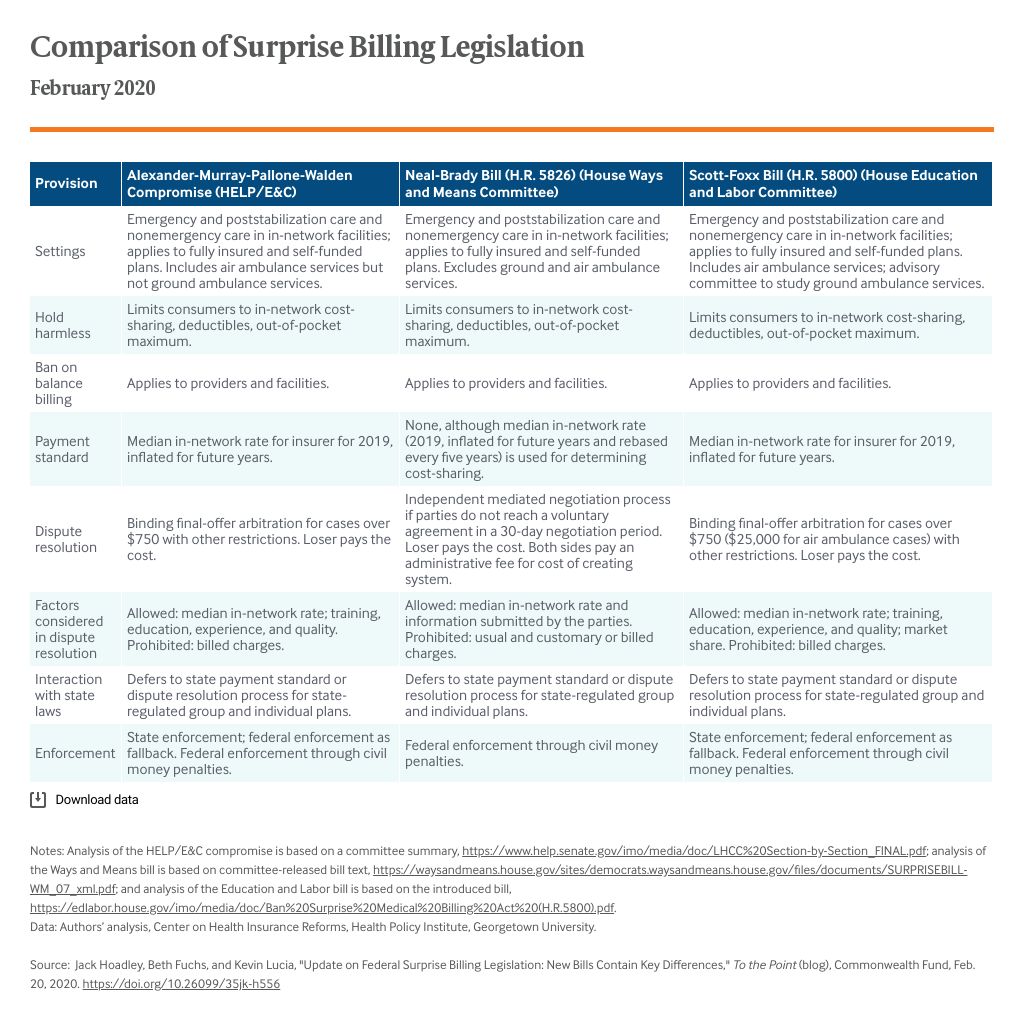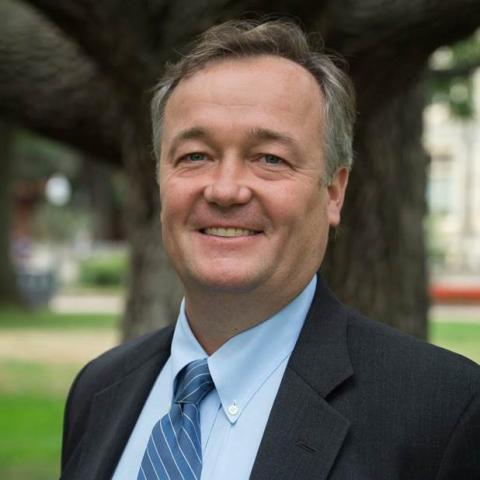At the end of last year, we wrote about the state of play for federal legislation on surprise medical bills. At the time, two bills had emerged from congressional committees: S. 1895, approved by the Senate Committee on Health, Education, Labor, and Pensions, and H.R. 2328, approved by the House Energy and Commerce Committee. The two committees announced a compromise proposal in December.
Twenty-eight states have enacted consumer protections to address surprise medical bills and 13 of them meet our standard for comprehensive protection. But state laws cannot fully protect consumers. They can’t help people covered by their employer’s self-funded plans, since federal ERISA law bars states from regulating them. States are also restricted from protecting people who receive surprise bills because of air ambulance services.
Further Action by Congress
Since our last update, two House Committees have approved new surprise billing legislation. On February 11, the House Education and Labor Committee approved the Ban Surprise Billing Act, introduced by Representatives Bobby Scott (D–Va.) and Virginia Foxx (R–N.C.), chair and ranking member. On February 12, the House Ways and Means Committee approved the Consumer Protections Against Surprise Medical Bills Act of 2020, introduced by its chair and ranking member, Representatives Richard Neal (D–Mass.) and Kevin Brady (R–Texas).
Like the December compromise package, the new proposals ensure that consumers will not face surprise bills beyond what they’d pay in cost-sharing for in-network providers. The proposals differ, however, in how they establish what insurers will pay out-of-network providers. The Ways and Means bill relies on voluntary negotiation backed up by independent dispute resolution (IDR) and thus aligns more closely with the approach advocated by hospitals and physician groups. The Education and Labor bill follows the approach in the December proposal by creating a payment standard with a backup IDR process — thereby attempting to bridge the gap between health care providers and insurers.
Differences Among Proposals
Finding an adequate payment standard. Like the December compromise, the Education and Labor bill bases payment on the median amounts paid by a health plan to its in-network providers. It uses the in-network rate for 2019 and inflates it forward to the year of the service, thus guaranteeing that rates negotiated after the bill’s passage would not influence the standard. The Ways and Means proposal does not include a payment standard, preferring voluntary negotiations backed by IDR. It does, however, use the in-network payment standard when calculating consumers’ cost-sharing liability.
Independent dispute resolution. The Education and Labor bill and the December compromise use a backup IDR process, the approach preferred by providers because it avoids a government-set rate. An independent arbitrator would determine payment in cases where providers are not satisfied with the amount paid under the payment standard. IDR would be available only if the bill is $750 or more. Because it has no payment standard, the Ways and Means proposal makes IDR the means of settling payment disputes. At the same time, it calls for voluntary negotiations to precede the use of IDR — looking for parties “to work out differences without interference.” Both proposals instruct the arbitrator to consider the median in-network rate and not the higher billed charges. This guardrail is designed to mitigate IDR’s potential inflationary effects.
Ambulance services. In contrast to the other proposals, the Education and Labor bill calls for a commission to consider how to incorporate protections for users of ground ambulance services. It follows the December compromise package in extending protections to people using air ambulance services, who are at risk of incurring large surprise bills. Both include an IDR option for cases above $25,000. The Ways and Means proposal does not include protections for air ambulance services but does create a cost-reporting program for these services.
Looking Forward
All the proposals under consideration aim to protect consumers from the financial burdens created by surprise medical bills while addressing the concerns of providers and insurers. Action by all relevant committees indicates progress. But differences among the proposals still need to be resolved, especially how to set payments to out-of-network providers and whether to include ambulance services. Congressional leaders have signaled their interest in brokering an agreement that, if enacted into law, could reduce financial risks for millions of consumers.



